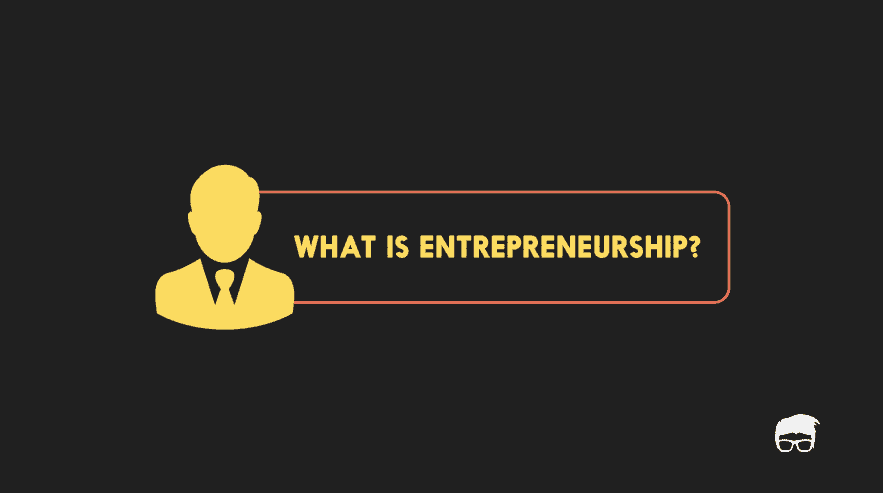Entrepreneurship is all about finding opportunities, converting them into a business, and taking risks while doing so. While many entrepreneurs find their motivation in money, challenges, creativity, or ego, some do find their motivation in solving the social problems a society might have.
Such special entrepreneurs are social entrepreneurs.
But what is social entrepreneurship, and what’s so social about it?
Who Is A Social Entrepreneur?
A social entrepreneur is an innovative initiator who decides to build a business dedicated to solving social, cultural, or environmental issues, taking on greater than normal financial risks in order to do so.
Precisely, social entrepreneurship, also referred to as altruistic entrepreneurship, is the practice of doing business aimed at resolving social market failures and creating opportunities to add social value systematically.
In simple terms, it involves running a business with an aim to benefit society rather than merely maximising individual profits.
According to experts, social entrepreneurship is a type of entrepreneurship where entrepreneurs:
- Combine commerce with a social issue; like what Elon Musk did by building accessible solutions to renewable energy with his ventures – SpaceX and Tesla,
- Innovate for social impact; like Tom Szaky who made it possible to recycle anything with his venture Terracycle,
- Act as a catalyst for social impact; like Greta Thunberg, who made the world realise the importance of taking immediate action against climate change.
But unlike what most people think, social entrepreneurs’ businesses are not always not-for-profit. They can be for-profit while prioritising positive social impact.
Social Entrepreneurship vs Commercial Entrepreneurship
Social entrepreneurship differs from commercial entrepreneurship on a fundamental level. The purpose behind social entrepreneurship is to create social value for the public good. In contrast, commercial entrepreneurship focuses just on creating profitable operations resulting in a private gain or economic value.
In simple terms, social entrepreneurship is mission-driven while commercial entrepreneurship is market-driven.
The outcome of social entrepreneurship is measured in terms of value created for society, which is often intangible. However, commercial entrepreneurship measures success in monetary and tangible terms.
Generally, a problem for the commercial entrepreneur is an opportunity for the social entrepreneur.
Characteristics Of Social Entrepreneurs
Social entrepreneurs possess characteristics similar to usual entrepreneurs but prioritise social impact and development more than other entrepreneurship motivations. Some traits that social entrepreneurs possess are:
- Deep Empathy: Social entrepreneurs have deep empathy for social issues that requires a solution. They find this empathy as their motivation to convert the problem into a business opportunity and fix what’s wrong with society.
- Cooperative Strategy: Generally, social entrepreneurs employ cooperative strategies rather than competitive owing to their social mission of entrepreneurs, poor working capital and market orientation.
- Social Commitment: Social entrepreneurs are committed to serving society at large. They believe in making a change while earning money to support the change.
- Innovative Mindset: Such entrepreneurs come up with innovative ideas that help to solve a social problem better.
- Changemaker Attitude: Altruistic entrepreneurs are real changemakers who change the way people do things or look at social problems.
- Future Orientation: These entrepreneurs believe the future is in our hands and take steps to develop a better future for society.
- Decisiveness: Social entrepreneurs are firm with their decisions to bring a social change with their solutions. This decisiveness helps them convince the world to agree to their point of view.
- Pragmatism: Data and facts drive these entrepreneurs. They are practical humans who make the world give attention to what deserves the most.
- Persistence: Social entrepreneurship isn’t easy. Such entrepreneurs have to compete with money-motivated entrepreneurs and have to be persistent to win over them.
- Risk Tolerance: Entrepreneurship comes with its own set of risks. Adding a social aspect to it add to more risks to the journey of a social entrepreneur.
- Market Failure: Usually, social entrepreneurship rises when there is a social-market failure, i.e., the commercial market forces do not fulfil a social need.
Types of Social Entrepreneurship
Social entrepreneurship isn’t a one-size-fits-all practice. It’s an umbrella term that constitutes different types of businesses that have a social impact in one way or the other.
According to research, social entrepreneurship can be categorised into three types. These are:
- Social Bricoleur
- Social Constructionists
- Social Engineers
Social Bricoleur
This is a highly localised social entrepreneurship where the entrepreneur addresses local concerns, partly driven by first-hand exposure to problems. For example, an entrepreneur developing solutions to solve the dirty drinking water problem in his city.
Such social entrepreneurship is scattered throughout the world but is highly local and is often characterised by limited resource pool and a local, tacit (domain-specific) mission.
Social Constructionists
Social Constructionists identify social gaps and convert them into opportunities by being more alert than others.
Such entrepreneurs have a broader market focus and focus on a problem as a whole, more than just a local concern. They look for developing an application for a local concern, that is expandable to solve problems occurring in different contexts and geographies.
Unlike social bricoleur, this entrepreneurship is resource-driven and is scalable. It focuses on developing a solution that’s applicable even in other countries.
An example of such entrepreneurship is Robinhood Army in India. The organisation aims to solve the problem of hunger and education among children who can’t afford the same. Started as a local mission, the solution has now found its application in other Asian countries.
Social Engineers
Social engineers are the entrepreneurs with the most resources who deconstruct and reconstruct society’s engines to achieve broader social aims. They challenge existing institutions’ current solutions and aim to reconstruct the system to solve such problems.
These entrepreneurs focus on large-scale issues with mass appeal in various settings and understood by people. But they come up with a solution that’s less self-evident.
Such entrepreneurs require substantial capital, often political capital, to develop a solution to the masses’ legitimate problem.
An example of such a social engineer is Muhammad Yunus. He is a Bangladeshi social entrepreneur who put efforts to solve the country-wide problem of poverty in Bangladesh. He didn’t work on a solution that would work from community-to-community. Instead, He brought in the concept of Grameen Bank and microcredit and microfinance to the country to tackle the issues of prejudice against women in the lending system, corruption within the lending system, and cronyism.
Benefits Of Social Entrepreneurship
Social entrepreneurs drive social transformations and bring a positive impact on the world. Social entrepreneurship benefits the world as it:
- Implements A Societal Change: Social entrepreneurship results in bringing a social change in the world for good.
- Enhances Quality Of Life: It improves the quality of life by solving social, cultural, and environmental problems.
- Is A Positivity Magnet: Social entrepreneurship is a light of hope that makes people believe that not all businesses are money-centric.
- Earned Support: Such organisations get support from customers, government, and society and even prove to be a better business than certain commercial organisations.
Social Entrepreneurship Examples
When it comes to social entrepreneurship, people often confuse commercial entrepreneurs who do some social good with actual social entrepreneurs. But not all big entrepreneurs are socially inclined.
Here’s a list of some famous social entrepreneurs who made the world recognise their work:
Bill Drayton
Bill is the one who brought, defined, and promoted the term social entrepreneurship to the masses. He is the founder of Ashoka: Innovators for the Public, an organisation dedicated to finding and helping social entrepreneurs worldwide.
The organisation has sponsored over 2,100 fellows in 73 different countries till now.
Muhammad Yunus
Muhammad Yunus brought a social revolution in Bangladesh by targeting and working on solving the problem of poverty in the country.
He founded Grameen Bank, propagating microcredit and microfinance concepts, and providing such loans to entrepreneurs too poor to qualify for traditional bank loans.
He was awarded the Nobel Peace Prize for the same.
Elon Musk
One of the richest men on earth, Elon Musk, brought a social revolution in the automobile industry by developing electric cars under his brand Tesla. The brand also caters to the solar power market and aims to solve other social problems like fossil fuel consumption and pollution.
Scott Harrison
Scott Harrison is the founder and the brains behind a nonprofit organisation charity:water. His main aim is to address the global water crisis issue and help people living without access to clean water.
Bill Gates
Even though he started as a commercial entrepreneur, Bill Gates soon shifted his focus to social entrepreneurship and founded the Bill & Melinda Gates Foundation. This foundation works with an aim to enhance healthcare and reduce extreme poverty across the globe.
It’s the largest private foundation in the world holding $46.8 billion in assets, controlled by its three trustees: Bill Gates, Melinda Gates, and Warren Buffett.
Go On, Tell Us What You Think!
Did we miss something? Come on! Tell us what you think about our article on social entrepreneurship in the comments section.
A startup consultant, digital marketer, traveller, and philomath. Aashish has worked with over 20 startups and successfully helped them ideate, raise money, and succeed. When not working, he can be found hiking, camping, and stargazing.








